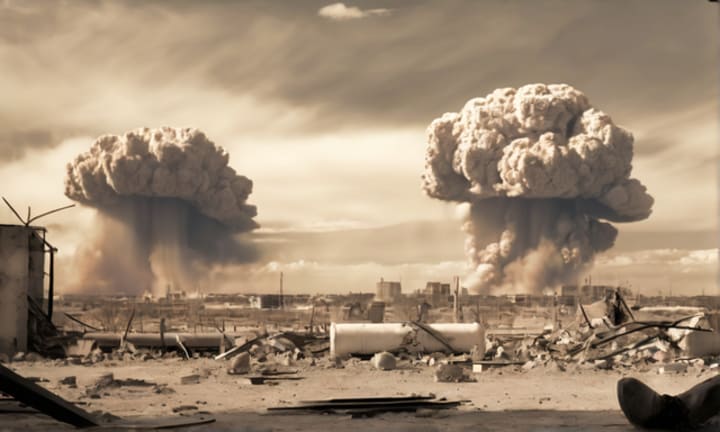
The detonation of an atomic bomb not only inflicts immediate devastation but casts a long, haunting shadow on the health of survivors. Beyond the visible scars, the invisible effects of radiation exposure, psychological trauma, and the disruption of communities persist for years, if not generations. This article delves into the enduring health consequences that unfold in the aftermath of an atomic bomb explosion.
Radiation-Induced Illnesses
Radiation is a silent assailant that infiltrates the body's cells, leaving a legacy of health issues that can persist for decades. Survivors of atomic bomb blasts are at risk of developing various radiation-induced illnesses, including cancer. The exposure to ionizing radiation increases the likelihood of cellular mutations, leading to an elevated risk of leukemia, thyroid cancer, and other solid tumors. The latency period for these conditions can span years, making it challenging to link them directly to the initial exposure.

Genetic Impacts and Hereditary Effects
The long-term repercussions of radiation exposure extend beyond the immediate survivors to future generations. Genetic mutations caused by radiation can be passed down to offspring, resulting in an increased risk of congenital abnormalities and hereditary diseases. Studies on survivors of Hiroshima and Nagasaki have revealed a higher incidence of genetic mutations in their descendants, emphasizing the intergenerational impact of atomic bomb radiation.
Chronic Health Conditions
Survivors of atomic bomb blasts face an elevated risk of developing chronic health conditions that can persist throughout their lives. Respiratory issues, cardiovascular diseases, and endocrine disorders are among the long-term health consequences attributed to radiation exposure. These conditions often manifest years after the initial exposure, making it challenging to establish a direct causal relationship.

Psychological Trauma Across Generations
The psychological toll of living through an atomic bomb explosion extends far beyond the immediate aftermath. Survivors and their descendants can suffer from enduring mental health issues, including anxiety disorders, depression, and post-traumatic stress disorder (PTSD). The profound impact of witnessing destruction, loss, and the ongoing threat of nuclear warfare reverberates through generations, shaping the collective psyche of affected communities.
Increased Susceptibility to Infectious Diseases
The immune system, compromised by the effects of radiation, leaves survivors more susceptible to infectious diseases. The long-term suppression of immune function can result in a higher incidence of infections and a reduced ability to combat illnesses. This heightened vulnerability adds another layer to the complex web of health challenges faced by survivors of atomic bomb explosions.

Disruption of Healthcare Infrastructure
The destruction caused by atomic bomb explosions extends to healthcare infrastructure, disrupting the delivery of medical services for years. Scarce resources, a surge in health-related demands, and the prolonged effects of radiation-related illnesses strain healthcare systems. Rebuilding and reestablishing medical facilities become imperative, further complicating the long-term health outlook for affected populations.
Social and Economic Disparities
Long-term health effects following atomic bomb explosions are exacerbated by social and economic disparities within affected communities. Displacement, loss of livelihoods, and the breakdown of societal structures create barriers to accessing healthcare and support services. The enduring consequences of atomic bomb blasts amplify existing inequalities, hindering the recovery and well-being of survivors.

The long-term health effects on the human body following an atomic bomb explosion paint a somber picture of the enduring impact of nuclear warfare. From radiation-induced illnesses and genetic mutations to chronic health conditions and psychological trauma, the fallout extends far beyond the initial devastation. Understanding these long-term health consequences is crucial not only for providing ongoing medical care and support to survivors but also for reinforcing the urgency of preventing future nuclear conflicts.
As we reflect on the enduring shadow cast by atomic bomb explosions, a collective commitment to nuclear disarmament, international cooperation, and support for affected communities becomes imperative. Only through a concerted effort to address both the visible and invisible scars left by nuclear warfare can we hope to build a world where the devastating health effects of atomic bombs are relegated to history, rather than perpetuated into the future.






Comments
There are no comments for this story
Be the first to respond and start the conversation.